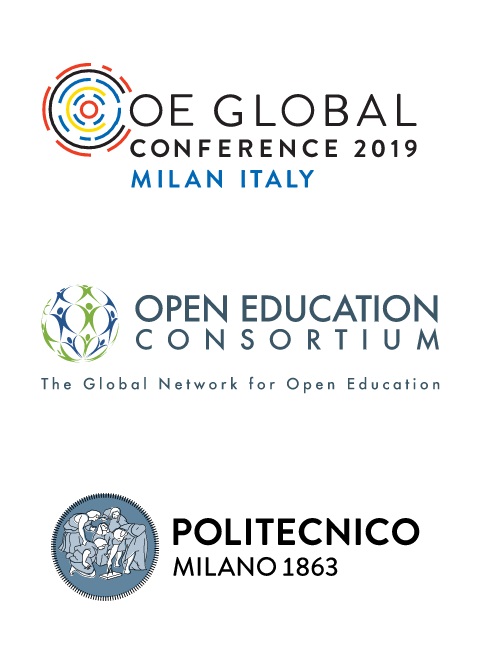Catherine was selected to present an Action Lab and a World Cafe session at the OE Global Conference 2019 in Milan, Italy in November. Her talk was entitled The Future is Here: Powering Lifelong Learning Architecture & Competency-based Education with Sustainable OER.
The Open Education Global Conference is where the world meets to discuss how opening education helps us achieve universal access, equity, innovation and opportunity in education. The OE Global conference is the most internationally diverse conference devoted exclusively to open education, attracting researchers, practitioners, policy makers, educators and students from more than 35 countries to discuss and explore how Open Education advances educational practices around the world.
Nearly 20 years ago we began to question, dismantle, and then re-engineer multiple systems that better align with the modern flow of information, the neuroscience of learning, and the need for a global citizenry of lifelong learners. Catherine’s Action Lab explored what we mean by “open”:
- Open content organization by breaking down disciplinary silos to create a interdisciplinary STE(A)M program that replaces formal science class
- Openly connect the personal, local and global by using real-world issues & problems to drive content organization, including the incorporation of all 17 Sustainable Development Goals, while still meeting government and institutional course requirements
- Open the roles of publisher, teachers & students, making them more collaborative and directly ensconced in the Information Age through a Sustainable OER model. We evolve ~15% of content annually and invite students to write & render ~30% of their ‘digital science textbook’
- Open learning architecture by using a multi-year progression rather than single-year courses. Students build layers of ‘conceptual threads’ across multiple contexts explicitly and in a personalized manner. This mimics brain activity during adolescence, a developmental period of high neural connectivity
- Open student assessment by linking individual performance tasks to common competencies, and replace the task “grade” with individual competency ratings that map to personalized learning profiles over time (and also remove midterms and final exams in the process!)
- Discard proprietary platforms in favor of those used commonly in schools (Google Classroom, Microsoft Education), which maintain long-term, truly inclusive, open access to evolving productivity integrations, creativity add-ons, and assistive technology tools. Schools can pilot emerging technologies without dismantling the structures of the learning progressions.
- Open students to a wide array of genres in authentic STEM, far beyond the digital textbook. We build on disciplinary literacy research to apprentice students.

